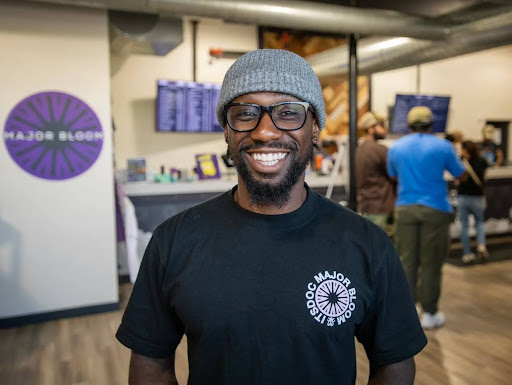
The word “equity” has been part of the business world for decades. It refers to ownership, investment, and the fair distribution of opportunity. In recent years, the cannabis industry redefined that term through Social Equity and Economic Empowerment programs — frameworks designed to support people who were harmed by the War on Drugs and excluded from economic mobility.
In Massachusetts, more than 600 individuals have enrolled in these programs, making our state home to one of the most robust equity pipelines in the country. Yet, with progress also comes growing pains. These programs have successfully supported businesses within the cannabis industry, but many equity entrepreneurs, myself included, face challenges outside the industry that the current support systems do not address.
This blog is not about blame. It is not a critique of any individual or institution. Instead, it is an honest reflection on the intersection of equity, entrepreneurship, and the systems that shape our personal lives. It is a call for fairness, compassion, and expanded support for those who have already endured disproportionate harm.
Equity Programs Built the Industry, But Equity Participants Still Face Stigma
Equity programs in cannabis emerged because of historical inequities: racially biased arrests, overly harsh enforcement, and generational barriers to capital. Massachusetts created its statewide program in 2018, ahead of most states. While Colorado legalized cannabis first in 2012, its statewide equity program didn’t roll out until years later. Other states have relied on county-level efforts, like California in the Bay Area and Los Angeles.
Today, Massachusetts remains a national model. We have state-administered funding, technical assistance, and grant programs, and since 2023, the Executive Office of Economic Development has taken a leading role in distributing these funds.
Despite these advancements, stigma remains, especially outside industry spaces. Even as a licensed operator, a business owner, an MBA graduate, and someone who has taught at the college level, I have still faced situations where cannabis was framed in a negative or outdated lens. That stigma becomes even more complicated for people of color, whose work is often interpreted through stereotypes rather than accomplishments.
Equity programs help level the playing field in business. But outside those walls, biases continue to appear in ways that affect families, finances, and emotional well-being.
The Human Side of Equity Work
Most equity operators know what it feels like to face predatory business deals, unfair investment terms, or impossible compliance hurdles. The regulated cannabis industry is expensive, highly regulated, and incredibly demanding. Many of us entered this space not because it was easy, but because we believed in repairing harm and building generational opportunity.
What doesn’t get discussed enough is the emotional and personal cost of being an equity entrepreneur.
For me — and for others with whom I’ve spoken across Massachusetts — the weight of building a business often coincides with personal battles. In my case, a difficult custody process began around the same time my business began to grow. Like many fathers, I entered parenthood with deep love and commitment. My sons grew up seeing my early work, visiting my office, watching the build-out, and being part of the community we serve. They were my motivation every day — and still are.
I’ve experienced something that many equity operators will recognize in other parts of their journey: We encounter systems that can be influenced by perception rather than full context — where outdated beliefs about cannabis still shape opinions; where race and class can influence how people are perceived; and where the most vulnerable — children — can be impacted by long, conflict-driven processes.
I share this to highlight an overlooked truth: equity participants often face pressure in every direction: professionally, financially, and personally.
We need support systems that recognize the full lives and responsibilities of those we call “equity.”
 Why This Matters for Massachusetts
Why This Matters for Massachusetts
Out of roughly 600 cannabis licenses in Massachusetts, only about 75 belong to equity operators who are fully operational. These businesses:
- Raised capital in a market hostile to small entrepreneurs
- Faced predatory investment terms
- Operated during shifting regulations
- Built teams in communities historically excluded from corporate industries
- Took personal financial risks most would never attempt
And many did all of that while also navigating major life challenges such as family responsibilities, medical issues, caregiving, and, in some cases, legal matters where they faced bias or misunderstanding.
If equity programs exist to repair harm, they must also recognize that harm doesn’t magically disappear once someone receives a license. The same systemic pressures that created the need for equity programs follow participants into other parts of their lives: education, finances, housing, and family court systems.
Massachusetts has been a leader in cannabis equity. The next step is recognizing that economic equity and family stability are connected.
A Call for Expanded Support
I am writing this blog because I believe it is time for Massachusetts to consider how to support equity entrepreneurs beyond the business license.
- Mental health support for equity business owners
- Pro-bono or subsidized legal resources for family law matters
- Bias training for public institutions where cannabis stigma still lingers
- Family stability programs tied to equity participation
- Community-based mediation that prioritizes children’s well-being
None of this requires new laws. Much of it requires collaboration between agencies already committed to equity, including the Cannabis Control Commission, the Executive Office of Economic Development, community partners, and advocacy groups.
Hope, Gratitude, and Faith
Despite the challenges, I remain faithful to my purpose and grateful for the community that continues to support me and my children. My business was built on service, resilience, and love for Worcester. Those values also guide me as a father.
Cannabis gave me a career, a community, and a calling. Now I hope it can also help bring awareness to a system that needs healing — for me, for my sons, and for many families like ours.

 Why This Matters for Massachusetts
Why This Matters for Massachusetts